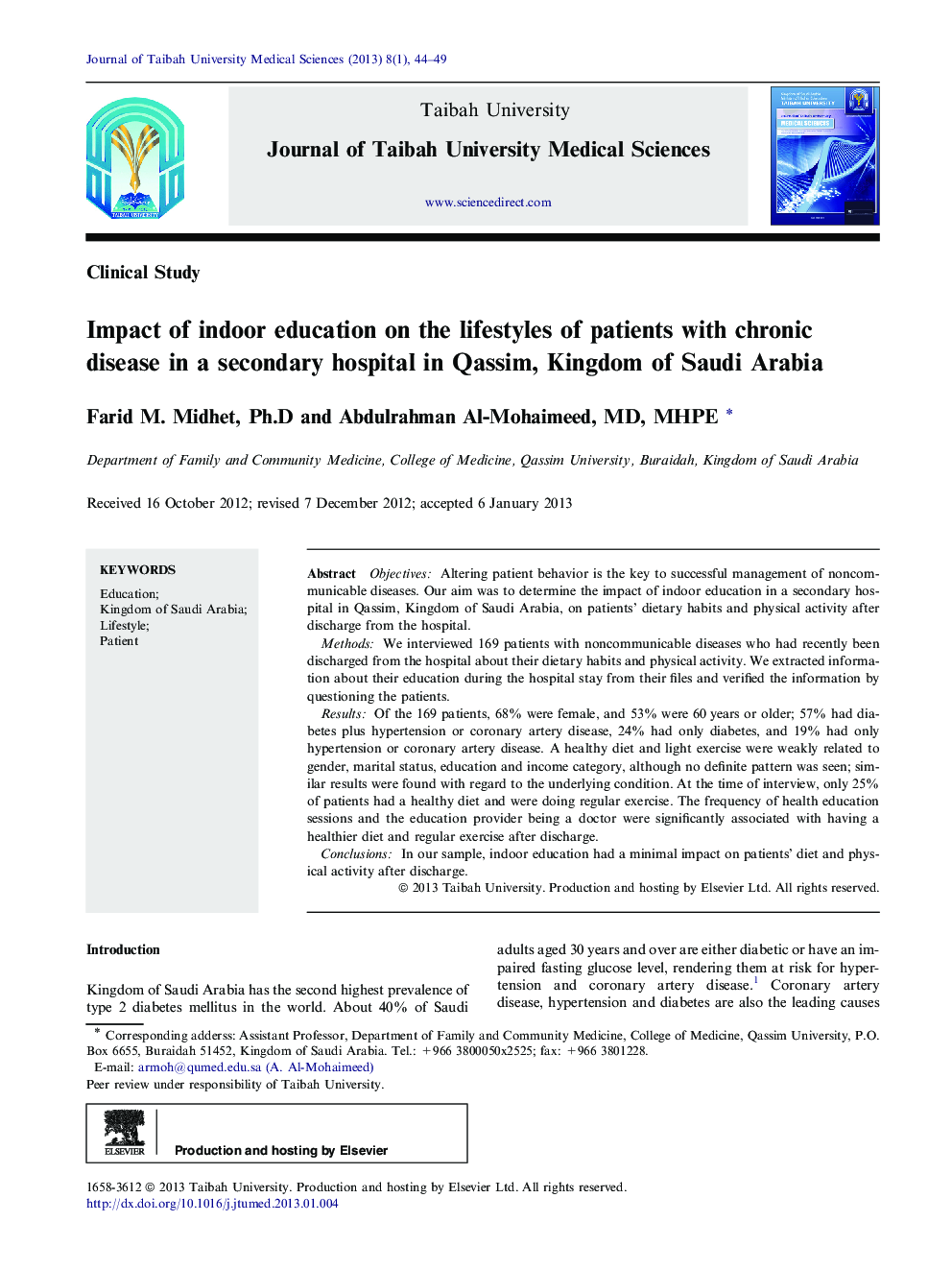| Article ID | Journal | Published Year | Pages | File Type |
|---|---|---|---|---|
| 3484392 | Journal of Taibah University Medical Sciences | 2013 | 6 Pages |
ObjectivesAltering patient behavior is the key to successful management of noncommunicable diseases. Our aim was to determine the impact of indoor education in a secondary hospital in Qassim, Kingdom of Saudi Arabia, on patients’ dietary habits and physical activity after discharge from the hospital.MethodsWe interviewed 169 patients with noncommunicable diseases who had recently been discharged from the hospital about their dietary habits and physical activity. We extracted information about their education during the hospital stay from their files and verified the information by questioning the patients.ResultsOf the 169 patients, 68% were female, and 53% were 60 years or older; 57% had diabetes plus hypertension or coronary artery disease, 24% had only diabetes, and 19% had only hypertension or coronary artery disease. A healthy diet and light exercise were weakly related to gender, marital status, education and income category, although no definite pattern was seen; similar results were found with regard to the underlying condition. At the time of interview, only 25% of patients had a healthy diet and were doing regular exercise. The frequency of health education sessions and the education provider being a doctor were significantly associated with having a healthier diet and regular exercise after discharge.ConclusionsIn our sample, indoor education had a minimal impact on patients’ diet and physical activity after discharge.
